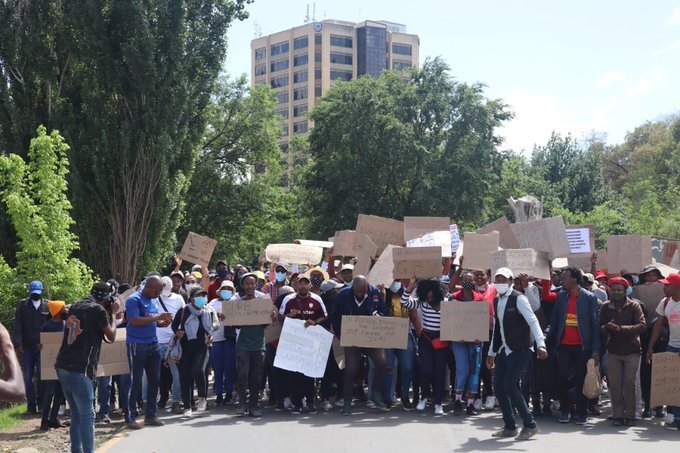Lesotho, the small, landlocked kingdom in southern Africa, has officially declared a national state of disaster in response to a spiraling economic crisis. The move comes as the country faces unprecedented uncertainty over punitive US tariffs, which threaten to devastate its textile-driven economy and plunge tens of thousands of Basotho into deeper poverty.
The Roots of the Crisis
At the heart of Lesotho’s predicament is its heavy reliance on textile exports to the United States. For decades, the African Growth and Opportunity Act (AGOA) provided Lesotho with duty-free access to the lucrative US market, enabling the country to build a robust garment industry that employs tens of thousands, mostly women. In 2024, Lesotho exported around $240 million worth of goods to the US, with textiles accounting for the vast majority.
However, in April 2025, the US administration imposed a staggering 50% tariff on Lesotho’s exports—the highest rate imposed on any country—citing the need to address America’s trade deficit and recalibrate global trade relationships. Although the tariff’s implementation was temporarily suspended, the uncertainty surrounding its future has already had devastating effects.
Economic and Social Fallout
The textile sector, Lesotho’s largest private employer, is reeling. Factories have shuttered, orders from US buyers have dried up, and workers are being sent home in droves. According to government figures, the unemployment rate stands at 30%, with youth unemployment nearing 50%. The government warns that up to 40,000 jobs could be lost if AGOA is not renewed and the tariffs are enforced.
The impact is not confined to the factory floor. Lesotho’s GDP, valued at just over $2 billion, is heavily dependent on its textile exports. The collapse of this sector would ripple through the entire economy, affecting livelihoods, food security, and social stability. The loss of US foreign aid, including crucial health programs, has further compounded the crisis.
Government Response: State of Disaster
Faced with this mounting crisis, Lesotho’s government declared a state of disaster effective July 7, 2025. The decree, set to last until June 30, 2027, grants authorities broad powers to bypass standard procedures and direct resources toward job creation and economic mitigation. Ministries have been ordered to allocate 2% of their budgets to initiatives aimed at tackling unemployment and supporting vulnerable populations.

Prime Minister Sam Matekane and Deputy Prime Minister Nthomeng Majara have both cited the “elevated levels of youth unemployment and job losses” as justification for the extraordinary measure. The government is also actively pursuing negotiations with the US in hopes of reducing the tariff burden and restoring investor confidence.
Human Toll and Social Unrest
The economic shock has triggered a wave of social unrest. In June, an activist was detained and charged with sedition after criticizing the government’s response, drawing international condemnation. Civil society groups warn that the loss of jobs could force many Basotho to migrate to South Africa, risking exploitation and further destabilization.
Calls for Diversification and Regional Integration
Experts and former government officials stress the urgent need for Lesotho to diversify its economy and reduce its dependence on a single export market. They advocate for leveraging regional trade agreements, such as the Southern African Customs Union and the African Continental Free Trade Area, to open new markets and build resilience. Strengthening ties with the European Union, China, and other partners is also seen as vital for the country’s long-term stability.
Conclusion
Lesotho’s declaration of a state of disaster is a stark reminder of the vulnerability of small economies in the face of global trade shocks. As the country navigates the uncertainty of US tariffs and the looming threat of mass unemployment, its leaders are racing to implement emergency measures, diversify the economy, and seek international support. The outcome of ongoing negotiations with the US will be pivotal—not just for Lesotho’s textile workers, but for the nation’s economic future.

